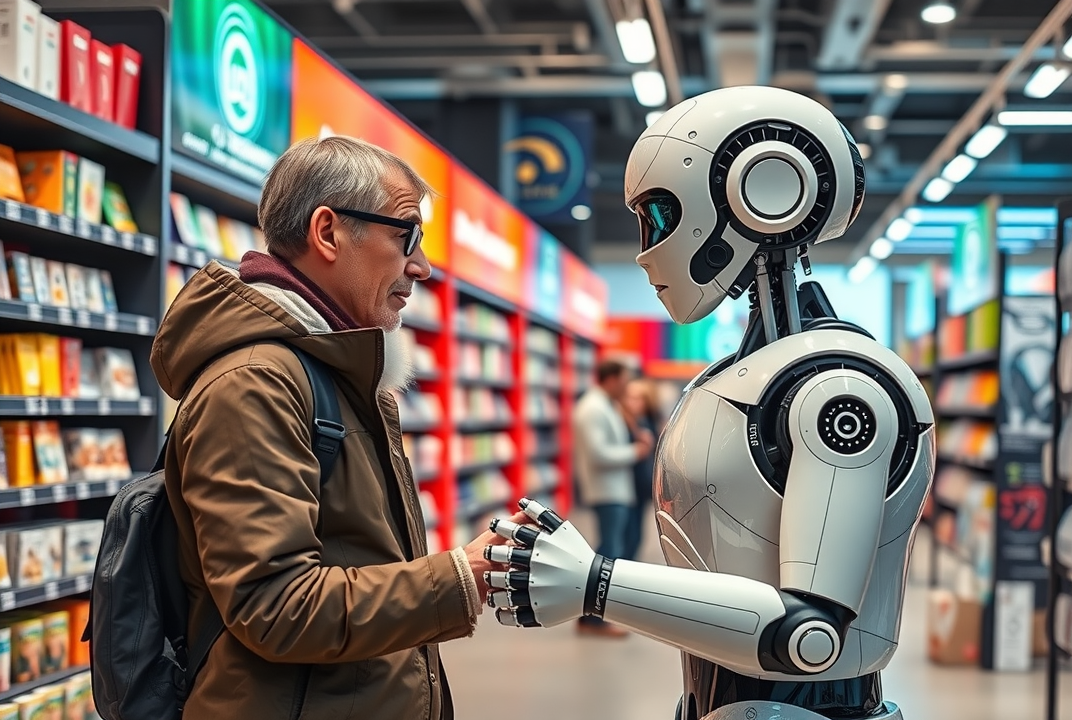AI in Retail: Revolutionizing the Shopping Experience

Introduction
Imagine walking into a store where every detail of your shopping journey has been tailored to your preferences. Artificial Intelligence (AI) is making this a reality by personalizing the retail experience like never before. The integration of AI in retail offers both retailers and customers unprecedented opportunities. For businesses, it represents an evolution towards more efficient operations and customer satisfaction. For shoppers, it translates to a seamless and personalized experience. This article explores the transformative role of AI in retail, highlighting the innovations in customer personalization and the technology behind it.
What You'll Learn:
-
The role of AI in enhancing the retail experience
-
Examples of successful AI applications in retail
-
Benefits and challenges of implementing AI in retail
The Role of AI in Retail
Enhancing Customer Experience
AI technology allows retailers to collect vast amounts of customer data. This data helps in understanding customer preferences, behaviors, and needs. By analyzing this information, retailers can offer highly personalized marketing strategies and recommendations, ultimately enhancing the shopping experience.
Inventory and Supply Chain Management
AI systems can predict supply and demand trends with remarkable precision. This enables retailers to manage inventory levels accurately, reducing waste and increasing profitability. Machine learning algorithms analyze past sales data and market trends to optimize stock and order quantities.
Dynamic Pricing Strategies
AI assists in developing pricing strategies by evaluating market conditions, competitor pricing, and customer buying habits. Real-time analysis allows for dynamic pricing adjustments that can attract more customers while maximizing revenues.
Examples of AI in Retail
Personalized Recommendations
One of the most visible uses of AI in retail is personalized product recommendations. Platforms like Amazon use AI to suggest products based on past purchases and browsing history, enhancing the likelihood of customer purchases.
Virtual Assistants and Chatbots
Many retailers employ AI-driven chatbots and virtual assistants to improve customer service. These tools provide immediate support, answer queries, and even process orders. They help in reducing wait times and improving the overall customer experience.
AI-Powered Analytics
Retailers use AI for in-depth analytics, exploring buying patterns and customer feedback. These insights help businesses tailor their offerings and marketing strategies directly to consumer needs, increasing satisfaction and loyalty.
Benefits of AI in Retail
Improved Customer Satisfaction
AI tools create customized shopping experiences, leading to higher levels of satisfaction. By anticipating needs and offering personalized solutions, AI contributes to a more engaging and satisfying shopping experience.
Operational Efficiency
The automation brought by AI reduces manual labor and increases accuracy across various areas of retail operations. From inventory to checkout, AI optimizes processes, saving time and resources.
Innovation and Competitive Edge
With AI, retailers can quickly adapt to market changes and consumer demands. This flexibility ensures a competitive advantage in a rapidly evolving market.
Challenges and Considerations
Data Privacy Concerns
The use of AI in retail raises significant concerns about data privacy. Retailers must navigate complex regulations and ensure transparent data practices to maintain customer trust.
Implementation Costs
Integrating AI technology requires a substantial investment. Businesses must evaluate the potential return on investment to justify the costs and ensure long-term viability.
Technological Dependence
Relying on AI systems can lead to technological dependency. Retailers need to balance automation with human oversight to maintain quality service and decision-making.
Conclusion
AI is reshaping the retail landscape, making shopping increasingly personalized and efficient. By leveraging AI, retailers can not only meet but exceed customer expectations, setting a new standard for the shopping experience. The future of retail will be defined by those who can successfully integrate AI to innovate continually and enhance the consumer journey. Retailers are encouraged to explore AI options thoughtfully, balancing technology with a human touch to lead in this transformative era.